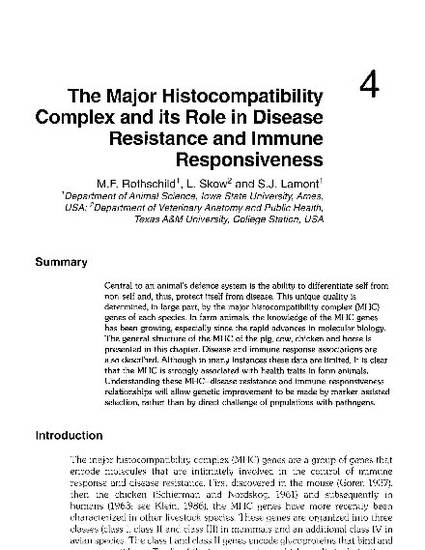
Central to an animal's defence system is the ability to differentiate self from non-self and, thus, protect itself from disease. This unique quality is determined, in large part, by the major histocompatibility complex (MHC) genes of each species. In farm animals, the knowledge of the MHC genes has been growing, especially since the rapid advances in molecular biology. The general structure of the MHC of the pig, cow, chicken and horse is presented in this chapter. Disease and immune response associations are also described. Although in many instances these data are limited, it is clear that the MHC is strongly associated with health traits in farm animals. Understanding these MHC-disease resistance and immune-responsiveness relationships will allow genetic improvement to be made by marker-assisted selection, rather than by direct challenge of populations with pathogens.
Available at: http://works.bepress.com/max-rothschild/189/

This is a chapter from Rothschild, M. F., L. Skow, and S.J. Lamont. 2000. The major histocompatibility complex and its role in disease resistance and immune responsiveness. In: Breeding for Disease Resistance in Farm Animals, Edition 2. CABI Press. pp. 73-105. Posted with permission.